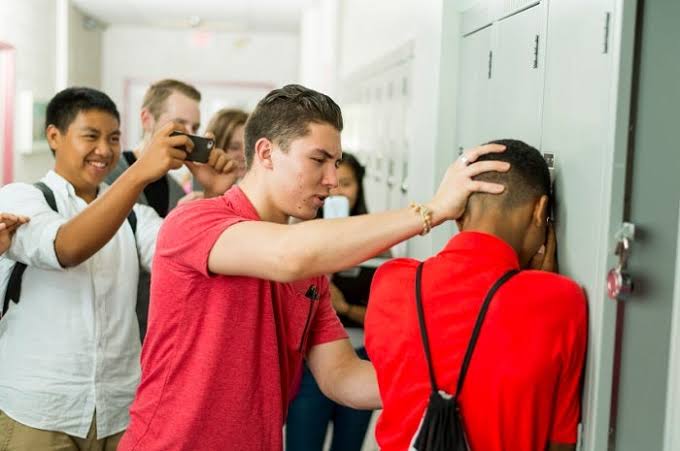
By Queen Obayemi
The classroom which is supposed to be a safe place for growth, learning and discovery has become a breeding ground for fear, intimidation and anxiety, where our children are forced to endure the trauma of bullying instead of thriving academically, psychologically and physically. Bullying has overtime become a really serious societal vice that poses threats to the physical and mental life of its victims. Bullying as observed is majorly caused by an imbalance in means and power and anybodu could be a victim.
School bullying is a major problem to societal growth that is strongly preached against but some people have still remained defiant and unyeildimg. It is a crisis that’s constantly smearing the fabric of our education system and the sound of laughter and learning is often drowned out by the harsh reality of bullying in our schools. And as a society, I strongly believe that we have to acknowledge the severity of this issue and work collectively and hand-in-hand to overcome it.
School bullying is characterized by an imbalance of power driven by societal and institutional norms and it is a toxic behaviour that can have long lasting consequences on the victim’s mental health, academic progress and relationship with others causing friendship problems. The aftermath of this whether in the short or long run has never been good as most victims tend to commit suicide or go into self isolation as bullying poses a high potential threat. The perpetrators of bullying must therefore be held accountable for their action and brought to book, adequate punishments should be dished out by the management of schools who should try as much as possible to prevent bullying from taking place.
Statistics on school bullying in Nigeria shows that about 71% of children have at one point hit others at least once. And bullying in private schools is significantly higher than government schools when it comes to hitting in the playground whereas it is more likely to take place in the classroom in government schools.
Speaking on bullying, it can be noted that physical bullying is the most common type in many parts of the world and boys are more likely to experience physical bullying while girls are more likely to experience psychological bullying. I personally believe from various circumstances observed that bullying often occurs among children who are perceived as different. A student placed on scholarship in an expensive private school for example has a higher chance of being bullied on the basis of being poor and of a lower class than other students. Though, the risk of being frequently bullied declines with age.
Recently, the Lead British International School in Abuja was under fire and being trolled by netizens over the bullying if students which led to its temporary shut down. At the end of the back and forth, the bully gave a public apology and counselling was suggested for the victim and her parents as the occurrence could affect the mental health of the victim and lead to Post Traumatic Stress Disorder popularly known as PTSD. Another significant incident to be taken to account is the December 2021 school bullying case when a student of Dowen College in Lagos died a few days after a video of him writhing in pain as a result of being bullied circulated online.
Research shows that about one in every four students at schools has been reported bullied and only about 36 percent have reported it. About 20 percent of students ages 12-18 experience bullying national at various places in schools. Studies show that 43.1% are in the hallway or stairway, 42.1% in classrooms, 26.7% in cafeterias while 12.1% are in the bathroom and locker rooms.
Going forward, parents, teachers, administrators and policymakers have more work to do as they collectively need to work and create safe and secure environments for learning and development. Parents need to emphasize the importance and imbibe a culture of kindness, compassion and empathy in their wards. Schools should be better informed and have more adults present in areas prone to bullying taking place like playgrounds, hallways and cafeterias and provide safe and confidential reporting mechanisms to encourage bullied students to speak up.
Victims should be properly counselled so as to avoid the unthinkable and clear consequences that ensure bullies are held accountable for their actions should be implemented. Use of technologies could also be adopted in an attempt monitor and report cases. All in all, stopping school bullying requires joint efforts from everyone starting with the government, down to the individual students. The time for action is now as our children’s wellbeing depends on it.
